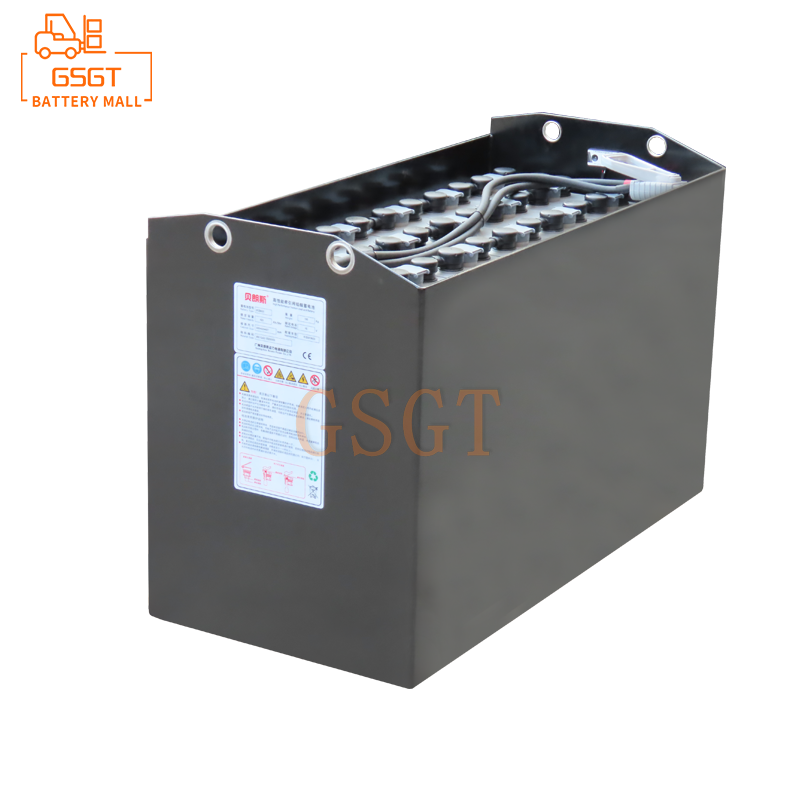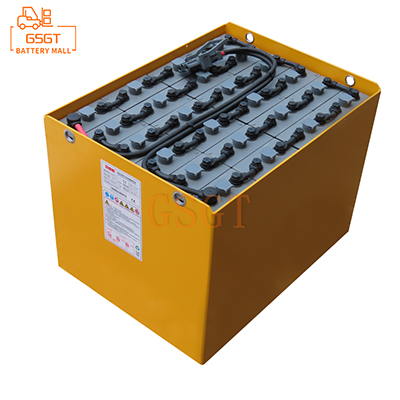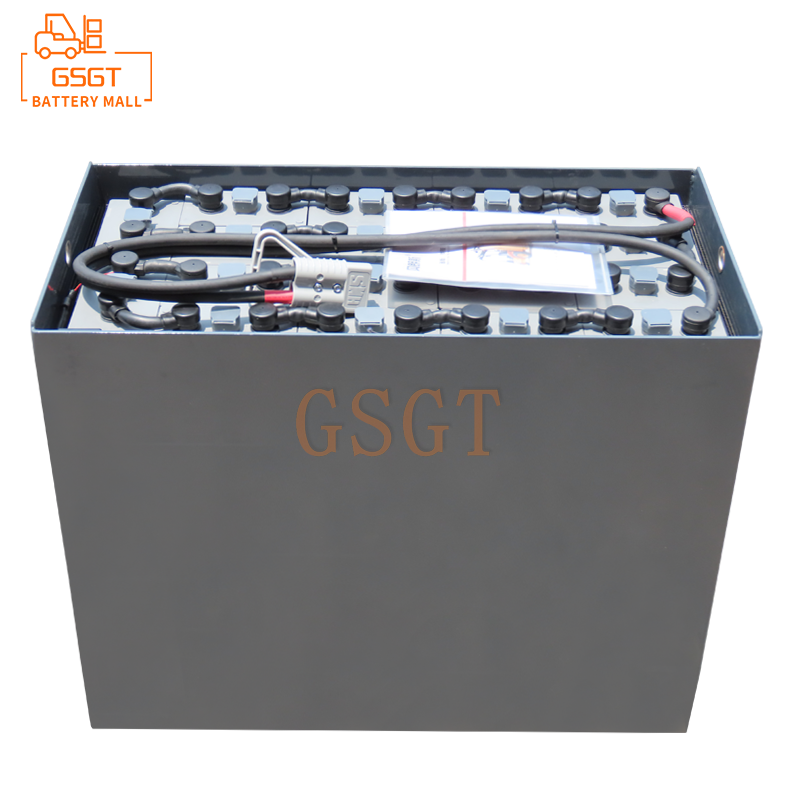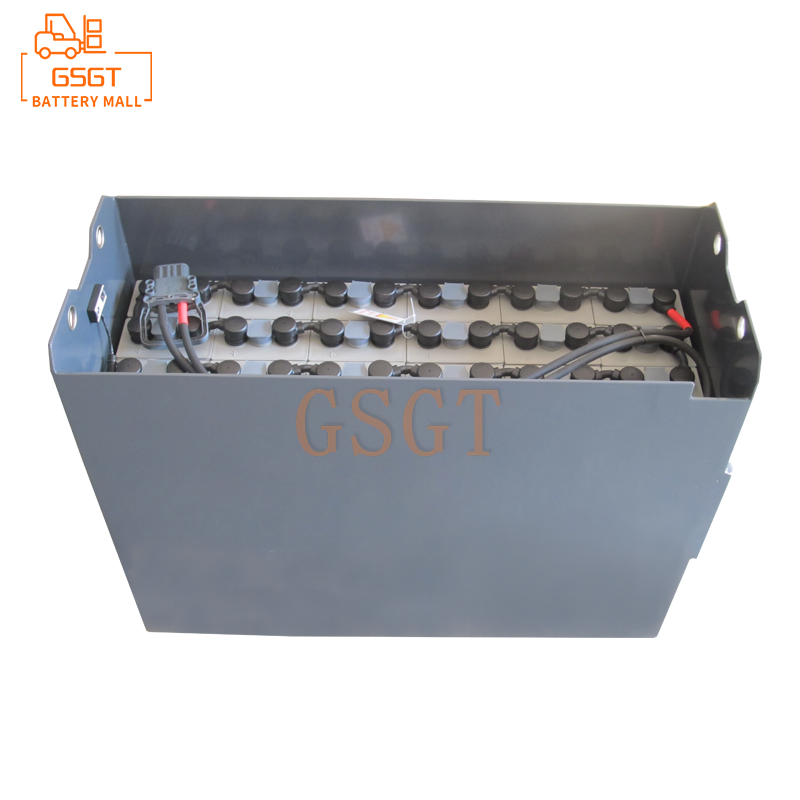Time:2025-03-31 10:12:52
Browse:637
In the field of industrial logistics, the performance of forklift lead-acid battery is directly related to the operation efficiency and reliability of forklift. In-depth analysis of its charge and discharge curve can accurately insight the electrochemical reaction process inside the battery, providing a key basis for optimizing the use of the battery and extending the service life.
## Charging curve mystery analysis
When the forklift lead-acid battery is charged, its charging curve shows a typical stage characteristics. At the beginning of charging, the current quickly rises to the set charging current value, at which time the battery voltage is relatively low, and the constant current is used for rapid charging. This is because after the battery is deeply discharged, a large amount of lead sulfate is attached to the plate, and electrical energy is urgently needed to promote the chemical reaction between lead sulfate and sulfate ions in the electrolyte, which is re-converted into lead and lead dioxide and stores chemical energy. As the charging process progresses, the battery voltage gradually increases, and when the voltage reaches a certain threshold, the charging enters the constant voltage stage. At this time, the charging current begins to gradually decline, which is due to the slowing down of the chemical reaction rate inside the battery, and the substances that can participate in the reaction on the plate are gradually reduced. In order to prevent overcharge from damaging the battery, the charging device automatically reduces the current.
In the late phase of constant voltage charging, the current decline trend becomes more obvious until it approaches zero, indicating that the battery is basically full. It is worth noting that the temperature during charging will also have an impact on the curve. When the temperature rises, the ionic activity of the electrolyte is enhanced, the electrochemical reaction is accelerated, the charging acceptance is improved, and the charging curve will move up accordingly, showing that more electricity can be charged in the same time. However, too high temperature will also accelerate battery water loss and plate corrosion, shorten battery life, so it is necessary to strictly control the charging environment temperature, generally maintained at about 25℃ is more appropriate.
## Depth analysis of discharge curve
The discharge curve of lead-acid battery of forklift truck also contains rich information. In the initial stage of discharge, the battery voltage is basically stable, and the battery continues to output electric energy at its rated capacity to provide stable power for the forklift truck. At this stage, the chemical reaction inside the battery is carried out stably, and the active substances on the plate participate in the reaction in an orderly manner, converting chemical energy into electrical energy efficiently. As the discharge time is prolonged, the battery voltage begins to slowly decline, which means that the battery capacity is gradually reduced, and the active substance on the plate is constantly consumed. When the voltage drops to a certain extent, the voltage drop rate accelerates, indicating that the battery is close to the end of discharge.
Different discharge currents have significant influence on the discharge curve. When large current discharge, the battery voltage drops faster, and the actual discharge capacity of the battery is lower than the rated capacity. This is because when the large current discharge, the chemical reaction inside the battery is severe, the surface of the plate will quickly generate lead sulfate crystals, blocking the plate pores, preventing the electrolyte from fully contacting the active substance, resulting in the electrochemical reaction is blocked, the battery internal resistance increases, and the voltage drops rapidly. For example, under high load conditions such as full load climbing and frequent starting, the discharge current is large and the battery range is significantly shortened. On the contrary, when the small current is discharged, the battery voltage drops more gently, and the electricity can be released close to the rated capacity, which is of great significance to extend the battery life and improve the endurance of the forklift truck.
## The value of charge and discharge curves in practical applications
The analysis of the charge and discharge curve of the lead-acid battery of forklift truck can provide accurate guidance for the daily use and maintenance of the battery. In terms of charging, according to the curve characteristics, reasonable setting of charging parameters, such as charging current, voltage and charging time, can not only ensure that the battery is full, but also avoid overcharge or undercharge. In the discharge process, according to the discharge curve under different working conditions, reasonable planning of forklift operation tasks to avoid long-term high-load discharge is helpful to extend battery life and reduce enterprise operating costs. At the same time, the charge and discharge curve can also be used as an important basis for monitoring the health status of the battery. By comparing the normal curve with the actual measurement curve, potential problems such as battery performance decline and internal resistance increase can be found in time, and maintenance or replacement can be arranged in advance to ensure the continuity and safety of the forklift operation.

$2450

$3405

$2140

$2040

MESSAGE
Professional And Efficient
Security
Affordable Price
Professional Services